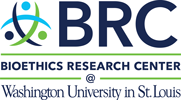Title: Oncology Study Guised as a “Program”
Author: Adrienne Carpenter
Description: A cancer research institute does not disclose to communities that smoking cessation programs are more than an intervention service but a research study.
Keyword(s): randomized controlled trials, waiver of informed consent, privacy/confidentiality, deception, public health research, scientific validity
Based On: (Brody, 1998)
Case: A cancer research institute designed a study to examine the efficacy of various anti-smoking interventions. The study involved ten communities. Five communities each received a different smoking cessation intervention while five other communities served as controls (they did not receive any intervention). Annual phone surveys were conducted to determine the cessation rates of different cohorts (e.g., light and heavy smokers, smokers in different age groups). However, the parties were not aware that they served as research subjects, and the community was not aware that the intervention programs were linked to any studies.
- Should informed consent be required in such a study? From whom should consent be sought and how?
- The researchers were concerned that informing individual smokers of their roles as cohorts would jeopardize response rate in the surveys conducted, potentially limiting power and generalizability. Is this a sufficient reason to bypass the informed consent process in this case?
- What are the major ethical issues this type of study raises?
- Would the ethical issues surrounding this case change if there were no control groups, with researchers simply using each intervention group as their own baseline? Is this similar to any other common practice?
Source: Brody, B. (1998). Ethics of Biomedical Research. New York: Oxford University Press.

